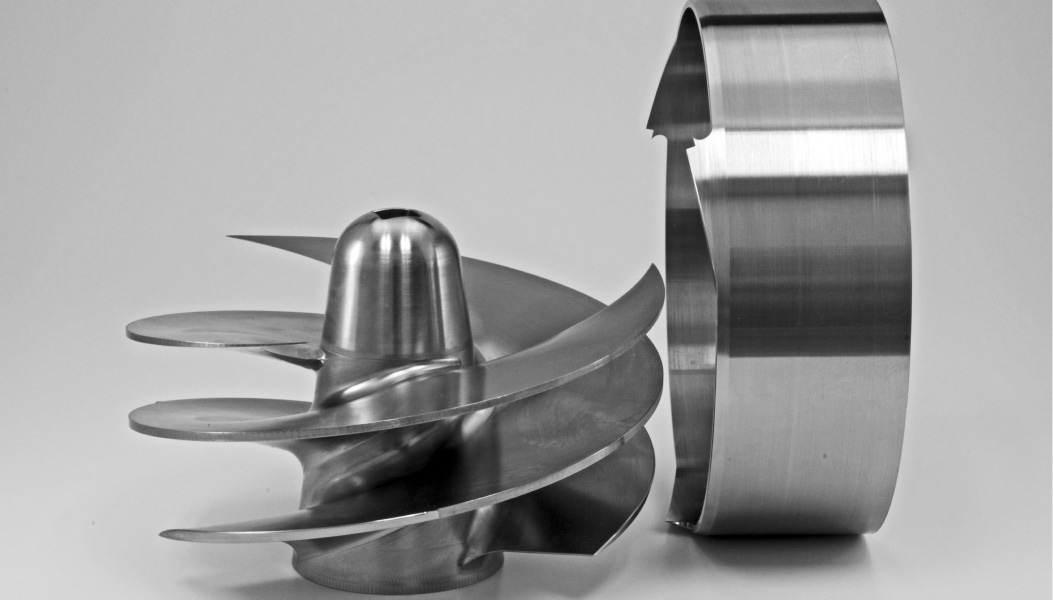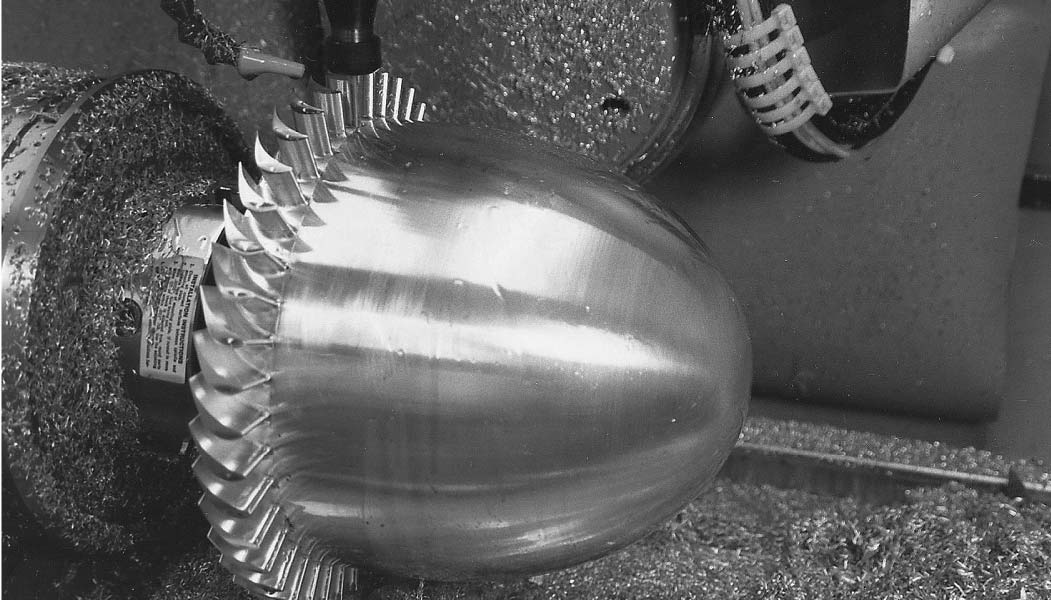Space & Rocketry
Creating propulsion components for mission-critical applications.


TURBOCAM started in 1985, months before the Space Shuttle Challenger explosion in January 1986. The one-man company’s first project for the launch industry was in 1988 for a SSME (Space Shuttle Main Engine) vibration analysis test bed at M.I.T. Gas Turbine Laboratory. Liquid oxygen (LOX) pumps for the SSME followed in 1997, and liquid hydrogen (LH2) blisks for the Delta 4 in 1999.
Comprehensive manufacturing capabilities
Over the years, TURBOCAM has made refrigerant pump impellers that keep the Space Station habitable, large rocket turbopumps that will take payloads to Mars, and smaller upper stages that maneuver spacecraft into useful orbits. Accuracy in machining is critical in the manufacturing of components for these mission-critical applications. Parts are measured on the machine soon after machining, and can be re-cut if necessary to achieve the desired profile. Temperature monitoring, and maintenance and calibration of equipment all contribute to critical process control. Reliability is enhanced by power conditioning and controls to protect machines during the long hours that have to be spent on profiling blade surfaces. Potential failure modes are addressed in hardware and software.
Components you can depend on
Experience is also central to the application of manufacturing technology for rocketry and space exploration hardware. Engineers, technicians and machinists have been working closely together at the company for decades to develop processes to manufacture the components upon which lives or payloads depend.
TURBOCAM has experience in high nickel and titanium alloys, as well as in more common stainless steels. The harder nickel alloys may be cut by milling or by Electrochemical machining (ECM) or ElectroDischarge machining (EDM) or combinations thereof.
TURBOCAM offers:
- Fuel and oxidizer TurboPumps, inducers and nozzles
- Open and integrally-shrouded impellers, and partially-integrally shrouded (TURBOCAM patented) impellers
- Quality management of copper and nickel brazing (by vendors) for shrouded impellers
- Non-destructive testing of brazed and welded joints
- Hirth, curvic or polygon couplings
- Friction-welded or Inertia-welded shafts
- Metallurgical experience and testing of stainless steels, titanium and aluminum, both wrought and forged
- Balancing and overspeed testing
- Statistical process control and superior quality management
- TX1 metal diffusion protection in steels for high wear and FOD environments
